Author: wilrens
-

The Structure of the Book of Psalms and Its Message 2
It is often held that the book of Psalms is the biblical version of a hymn book, with little or no structure. (I used to believe this myself until quite recently.) But there is more to Psalms than meets the eye. This is the second and final part: an attempt to decode the message!
-

The Structure of the Book of Psalms and Its Message 1
It is often held that the book of Psalms is the biblical version of a hymn book, with little or no structure. (I used to believe this myself until quite recently.) But there is more to Psalms than meets the eye. Find out what I learned.
-

The Rhetorical Structure of 2 Corinthians
Second Corinthians is hard to follow – until you understand the rhetorical strategy and skill Paul applies in his fight for integrity.
-

Sacrifices and Purity Laws: Do We Need a Red Heifer?
For the first time in many (many) years, I taught the book of Numbers this January. I often get asked what my favourite book of the Bible is. My answer has never been: “Numbers!” But I must say, as I spent time reflecting on this book, it grew on me. Or perhaps more accurately, it…
-

1 Corinthians: Is Paul Also among the Rhetoricians?
Occasionally, we run into a piece of new information that throws a bright new light on something familiar. It enables us to see coherence where before we had not noticed connections. In other words, it creates an “Aha!” experience: suddenly everything (or at least something) makes sense. This happened to me when I was preparing…
-

‘New Women’ in Rome and in Corinth
I should have read this book much sooner. It provides crucial background information on the life of women in the first century. In doing this, it illuminates several difficult and controversial passages in the New Testament. I am referring to Bruce Winter’s Roman Wives, Roman Widows: The Appearance of New Women and the Pauline Communities,…
-

Foreknowledge: God of the Impossible?
Does God know the future, in detail, the way he knows the present and the past? After last month’s look at God and time, it is now time (ahem) to ask this follow-up question. One book arguing against God’s foreknowledge has the curious title God of the Possible (Boyd 2001), which makes me wonder. You…
-

Time and Eternity
“Those who think about time are thinking deeply. Those who think about God are thinking even more deeply still. Those who try to think about God and time are pressing the very limits of human understanding” (Craig 2001a: 4). Indeed. I can speak from experience now: William Lane Craig’s statement is true. I have been…
-
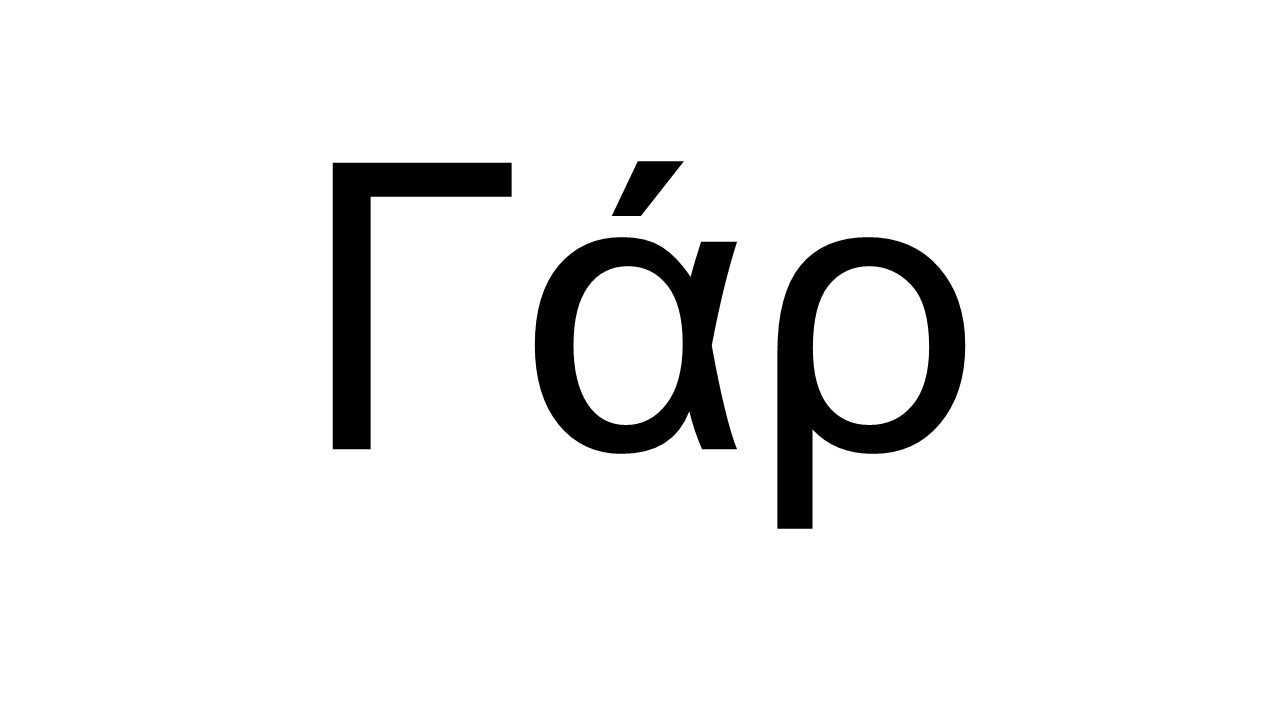
For
I kept it short. The title I mean. It is the shortest title I’ve had; it does not get much shorter than this. I also kept it small. After several issues dealing with an entire book of the Bible, this one is about a single word, and a short one at that: the conjunction for.…
-

Job: Will We Serve God for Nothing?
It is the third time in a row that I write about a book of the Bible. There are so many exciting books to choose from! Job is a book I have not seriously touched in many years, so it is time I do something with it. I ran into a book by Tremper Longman…
-

Joel: An Army of ‘Locusts’ or an ‘Army’ of Locusts?
The title is subtle (read it again if necessary), but in those few words, it nails a significant debate among interpreters of the prophet Joel. What are we to make of the language referring to locusts and to people, soldiers, and armies? What is literal here and what is metaphorical? Was Judah invaded by a…
-
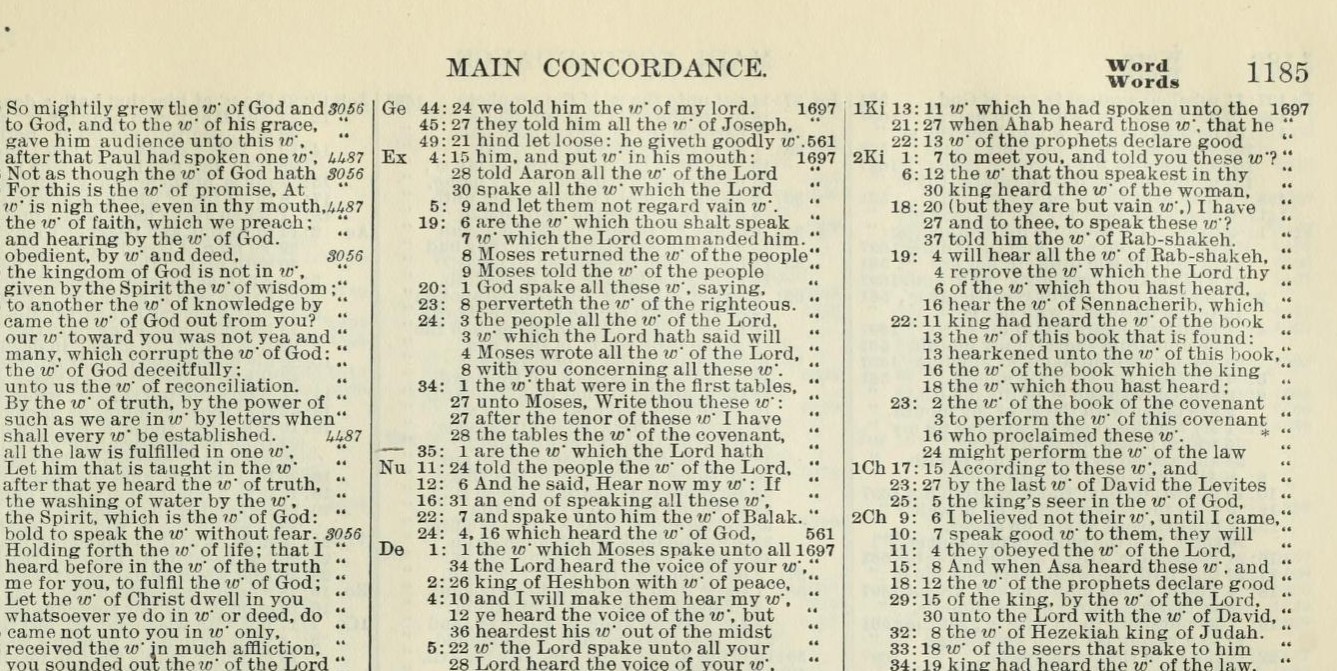
The New Toolbox Is Here! And: More Word Crunchers: Lexica and Theological Dictionaries (Resources 2)
This month, I present the revised version of the Digital Toolbox; it is available to everyone who subscribes to this blog as a free download (to register and gain access, see the form on the right). All the links have been checked and many have been added: about 500, to be more precise, raising the…
-
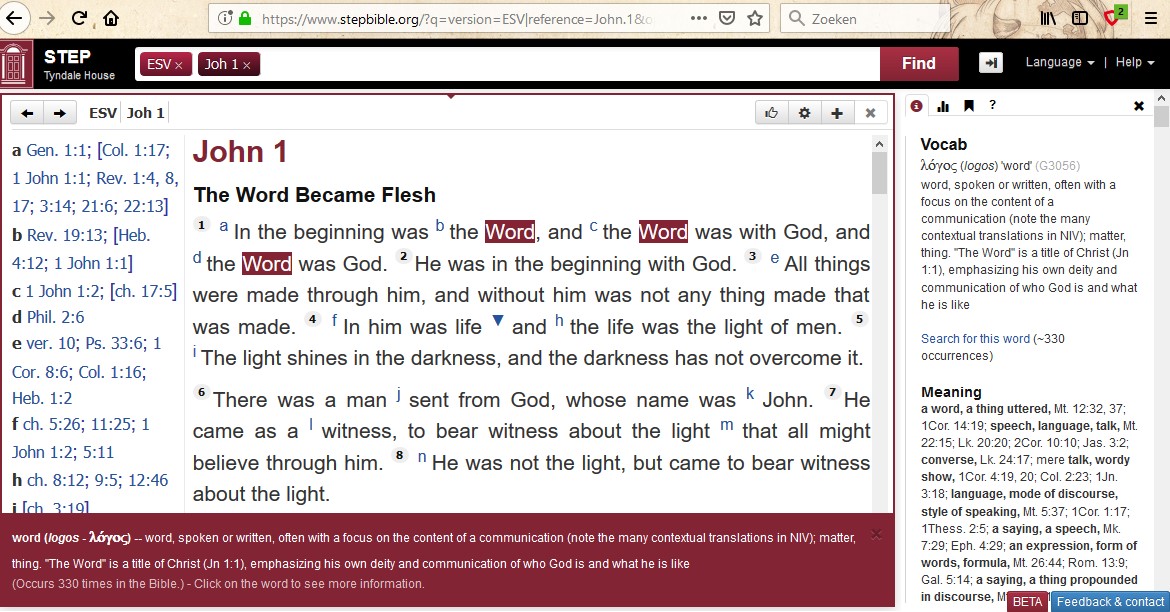
Word Cruncher! Reverse Interlinear (Resources 1)
I am getting ready for a revision of the Digital Toolbox (hopefully next month), which draws my attention to resources for Bible study. In this issue and the next, I will discuss a few, at least one of which may be new to you. They all have to do with taking a closer look at…
-

Anniversary Issue: Five Years Create a Learning Site
This month, it is five years since the first issue of Create a Learning Site (CALS) came out. That makes for a grand total of 60 issues. So this one, issue 61, will be a little different. I am not presenting a topic or wrestling with a Bible book. Instead, I revisit those months in…
-

In Honour of Jesus: Objectivity Is Overrated (Eyewitnesses and the Gospel)
In January of last year, I did an issue on the authorship of John’s gospel, based on a book by Richard Bauckham (the answer, it turned out, is not as simple as that phrase, the author of John, might suggest). I finished with this statement, a mental note to myself: “On my reading list: Richard…
-

Out of Egypt
Where did the Israelites cross the Red Sea? Or did they? Perhaps it would be better to ask: What did they cross? Questions like these have been a puzzle for biblical scholars. For many today, however, all of this belongs to the realm of legend and myth; none of it happened, and there is therefore…
-

Ezra: What Is Its Message?
For last year December, I was asked to teach a week in Norway that included the book of Ezra. This offered me a rare opportunity. I don’t think I have ever taught this book before, so it gave me the chance to prepare a brand-new teaching on a book from scratch. Some months before, I…
-

Jesus on Divorce
The teaching of Jesus on divorce has been misunderstood by the church virtually from the beginning. The traditional view is that divorce is only allowed in the case of adultery and of desertion by an unbeliever; remarriage is not permitted as long as the marriage partner is alive. Noticeably, this does not allow for divorce…
-

Crucifying the Warrior God (Boyd Project 5)
It is time to wrap up. How does Boyd’s cruciform hermeneutic work when it is applied to actual Bible passages? In the first volume of The Crucifixion of the Warrior God, Boyd posits the cross as the centre and foundation of Christian theology. From this, he derives, through deduction, what God can and cannot have…
-

A Peculiar Blend of Cruciform (Boyd Project 4)
The previous issue dealt with chapter 1-6 of Greg Boyd’s monumental book, The Crucifixion of the Warrior God. It presents Boyd’s general theory of interpretation, which can be summarized in one word: cruciform. The second half of volume 1, chapter 7-12, deals more specifically with the problem of violence in Scripture and discusses possible solutions.…
-

A Cruciform Hermeneutic (Boyd Project 3)
In this third issue on Boyd’s monumental work, The Crucifixion of the Warrior God, I begin to interact with the book itself. In the first six chapters, Boyd gives us his general theory of interpretation or, in one word, his hermeneutic. Before I dive into this, I need to vent a major frustration I have…
-
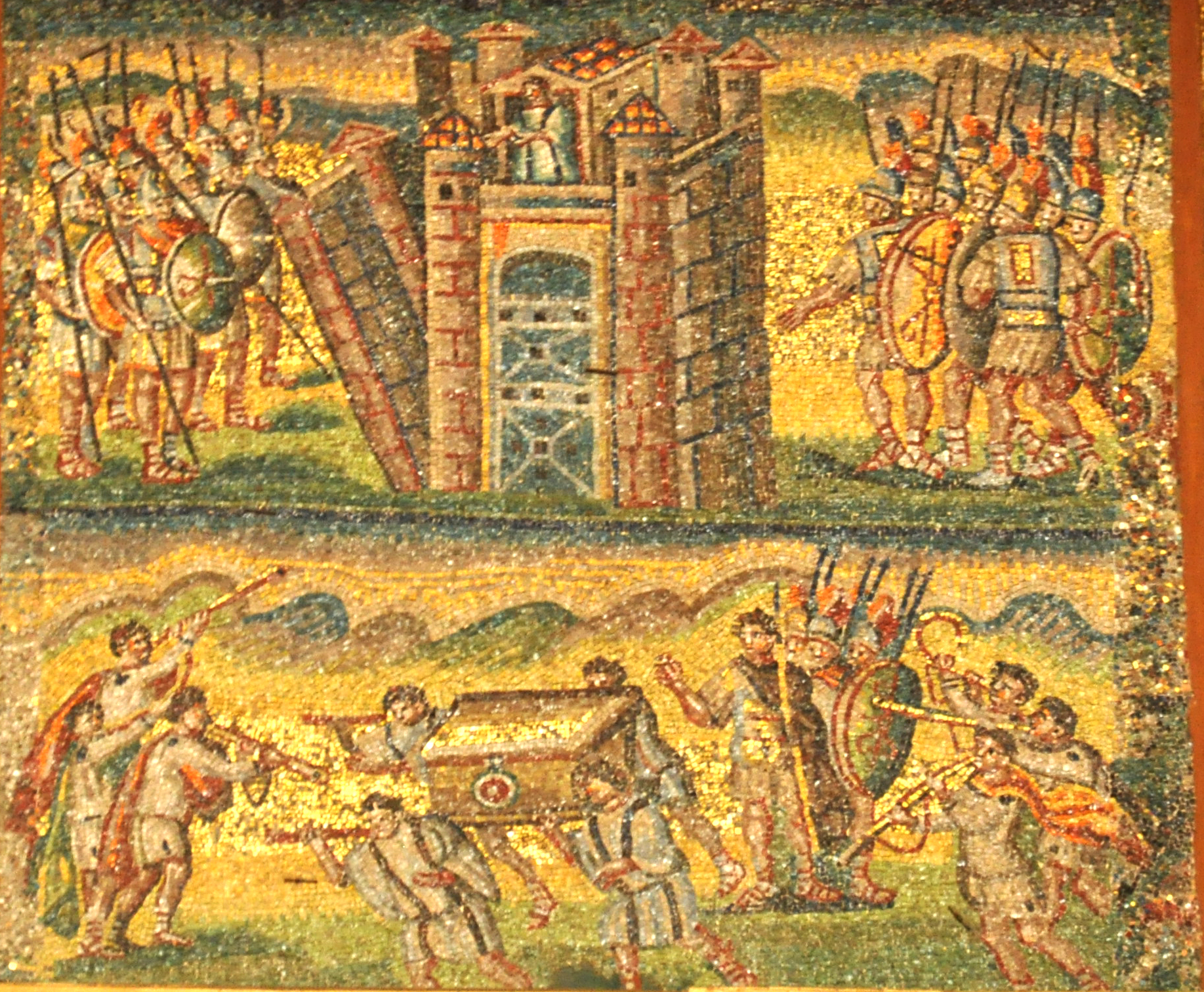
War in Joshua (Boyd Project 2)
I continue my exploration of the conquest of Canaan; this issue is all about the book of Joshua. If taken at face value, Joshua may be the most violent book in the Old Testament (OT). What do we make of this book today? What did God command? And what does that highly peculiar Hebrew word…
-
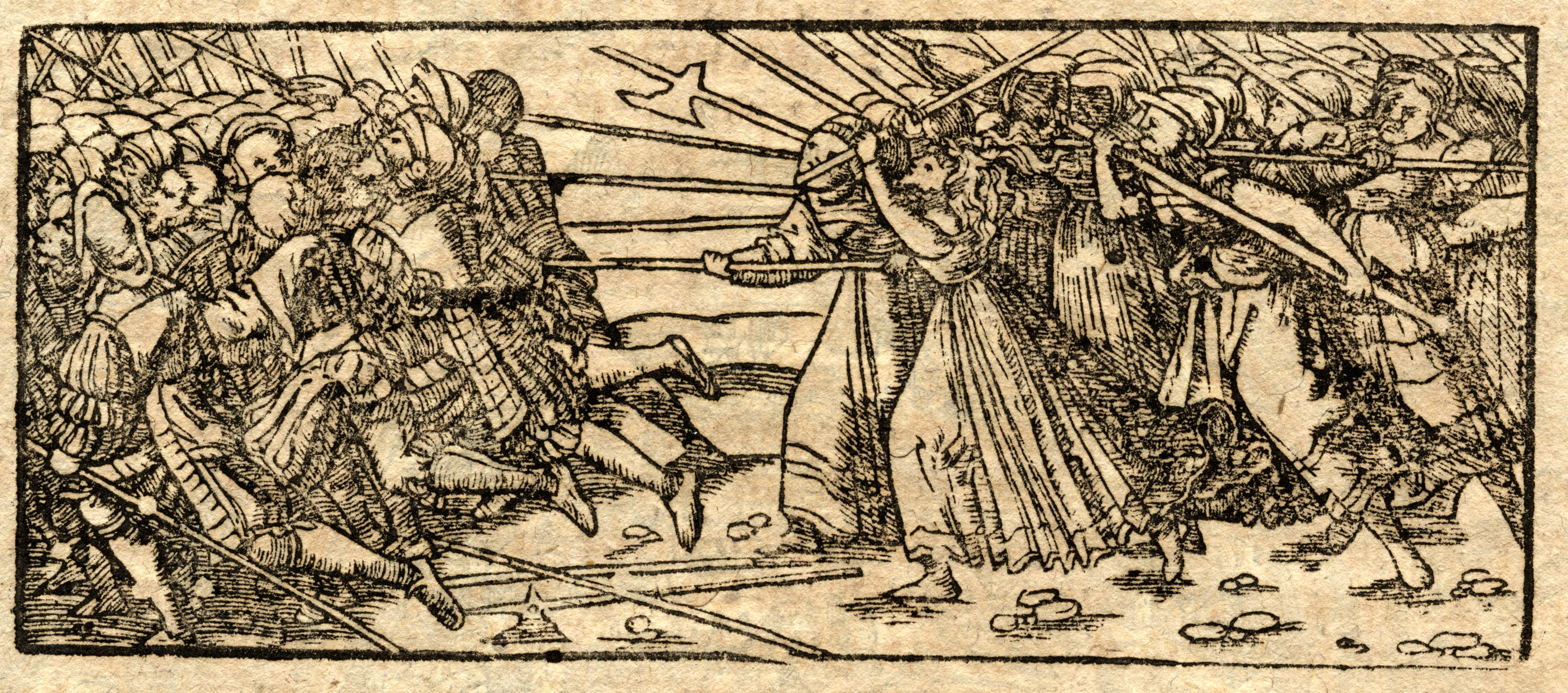
The Conquest of Canaan (Boyd Project 1)
I am launching a project that will take me several issues to complete. The subject is a big one: what some people refer to as the violence of God in the Old Testament (OT). Gregory Boyd has written a voluminously fat book about this: The Crucifixion of the Warrior God: Interpreting the Old Testament’s Violent…

